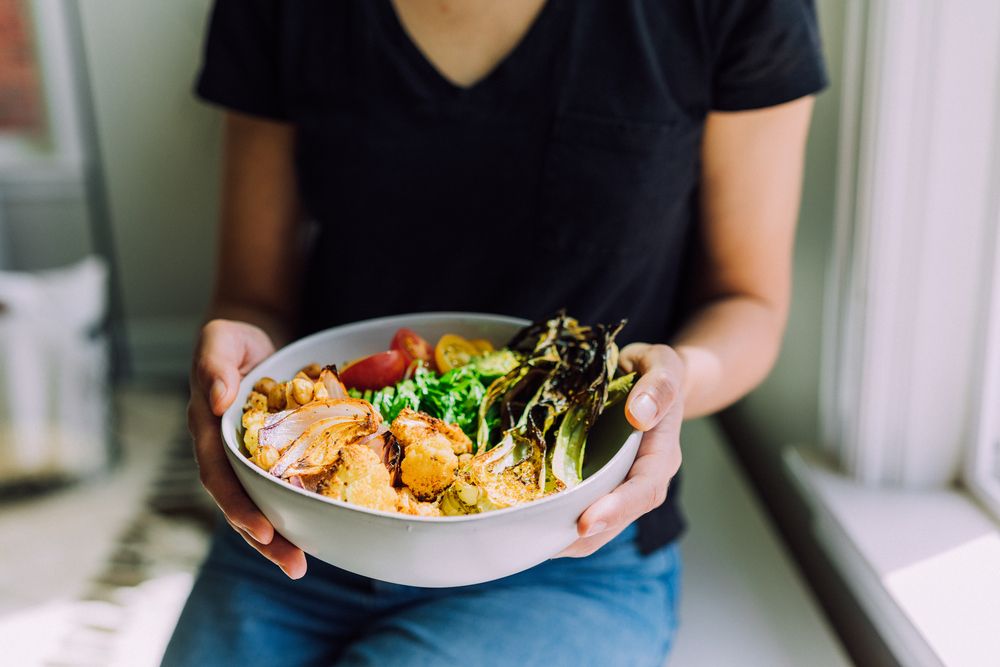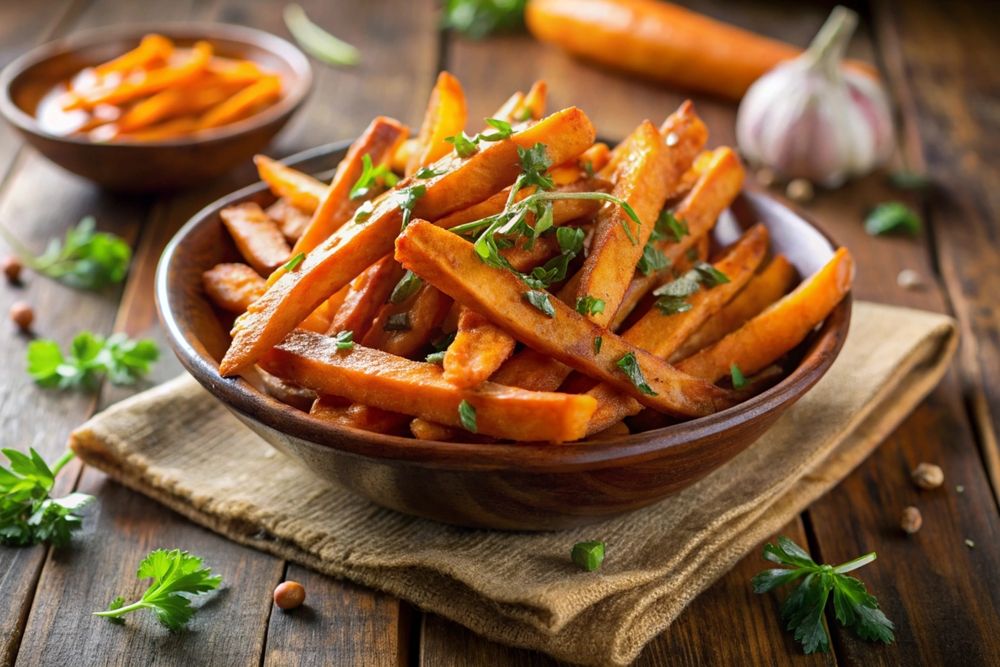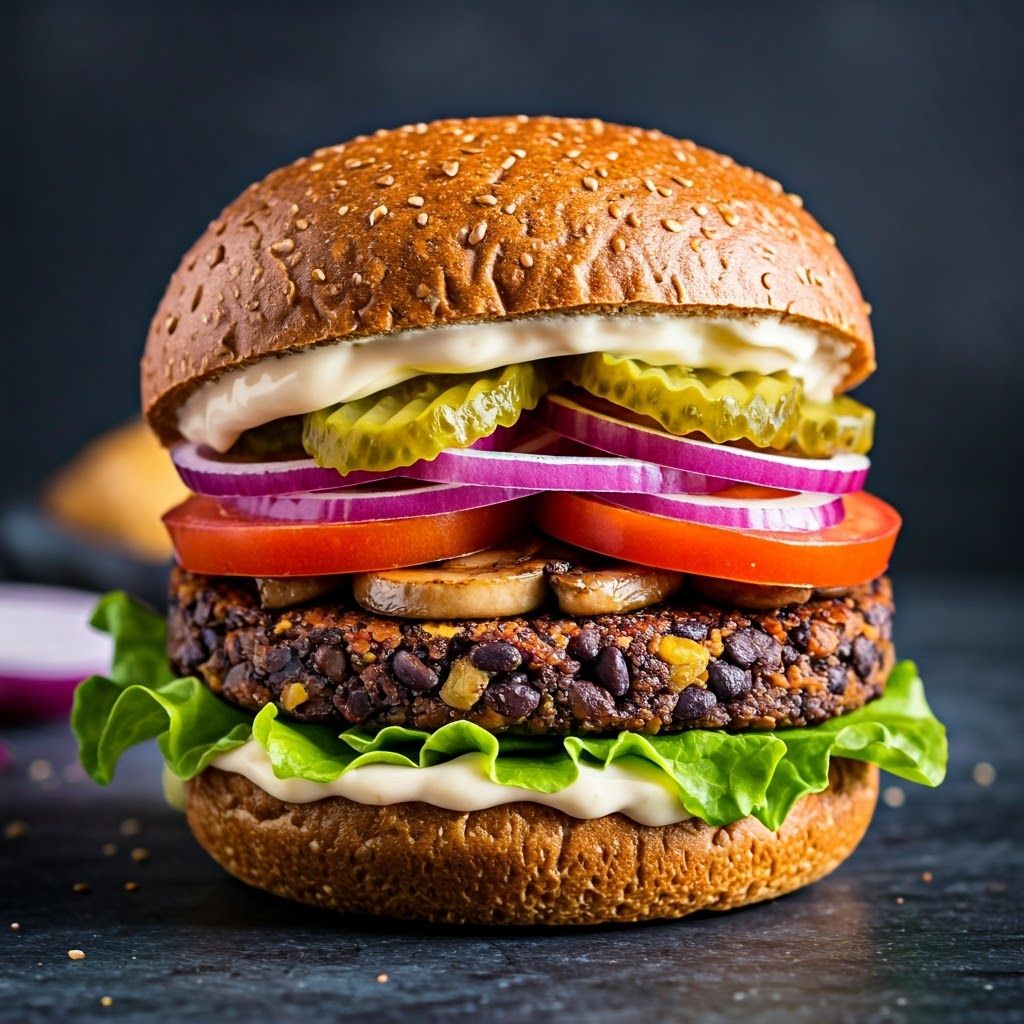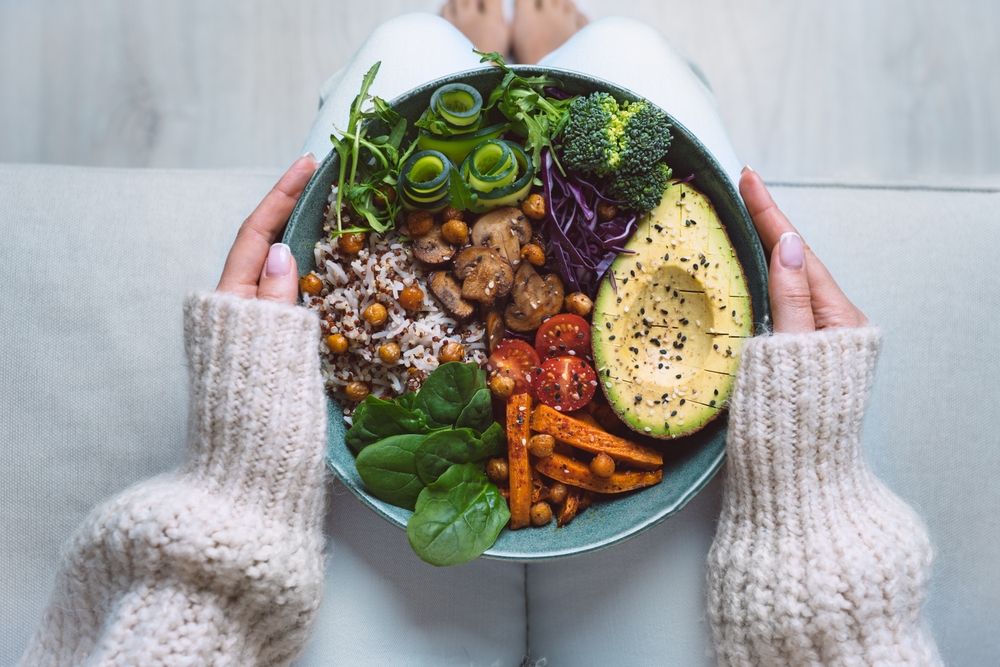
Veganism has become a mainstream lifestyle choice over the past decade, driven by various factors such as animal rights, environmental concerns, and health benefits. Studies show that a plant-based diet can significantly reduce the risk of cardiovascular disease, type 2 diabetes, obesity, and non-alcoholic fatty liver disease.
Adopting a vegan lifestyle does require effort and preparation—especially if you aim to do it the healthy way by avoiding frozen and junk foods. But the rewards go far beyond better health. Eat This, Not That! spoke with individuals who transitioned to a plant-based diet, sharing how it transformed their energy levels and improved their lives.
Less Health Issues

Jerry Levine, Chief Evangelist and General Counsel at leading LegalTech company ContractPodAi, had been married to a vegan for 20 years, but it wasn’t until his wife and doctor urged him that he made the switch himself.
“I had an upcoming physical and asked my doctor about going vegan. Her response was blunt: ‘You have three choices—go vegan, start exercising, or die at 40.’ I figured going vegan was better than exercising or dying,” Levine recalls.
Once he cut out animal products, Levine experienced a dramatic transformation in his health.
“I have significantly more energy now,” he shares. “Before going vegan, I was borderline—or actually—obese, diagnosed with sleep apnea, and on medications a 35-year-old shouldn’t need, like statins and blood pressure pills.”
The results were life-changing. “It was like turning back the clock 15 years,” Levine says. “I could stay up later, didn’t need extra sleep, and woke up feeling rested. While it took time, the effects were rapid—cutting out milk and meat and focusing on better-quality food made all the difference.”
Improved Skin

After watching the documentary Forks Over Knives, Virginia Stockwell, Business Coach and Kajabi Expert, decided to adopt a vegan lifestyle to take a healthier approach to eating and cleanse her body of toxins.
“At first, I noticed my actinic keratosis cleared up, and I became thinner,” she shares. “Looking back at photos, I didn’t appear too thin, though, as I was a personal chef at the time and had a good understanding of the nutritional value of foods—something not all vegans have the privilege of being educated on.”
However, Stockwell did notice some challenges. “My energy levels remained normal, but my hobby of lifting weights became more difficult. I couldn’t lift the same weights I did before going vegan,” she explains. Her journey highlights the importance of balancing nutrition and fitness when adopting a plant-based lifestyle.
Doesn't Need a Pick Me Up

Feeling sluggish, especially in the mid-afternoon, is a common struggle. But since Tiffany Gregory, co-founder of the 3D printing blog Layermatic, switched to a vegan diet, she no longer needs an energy boost to power through her day.
“I think it’s because plant-based meals naturally encourage eating more nutrient-dense foods,” she explains. “My meals now include beans, lentils, spinach, quinoa, and sweet potatoes, which are far more balanced than what I used to eat.”
Gregory has also noticed another significant benefit: she feels lighter after meals.
“I don’t get that heavy, tired feeling I used to have after big meals,” she says. “That change alone has made a huge difference in how I feel during the day.”
Her workouts have improved too. “I have more stamina, recover faster, and don’t feel as drained afterward,” she adds. Gregory’s experience highlights the energizing and performance-boosting benefits of a well-rounded vegan diet.
Eating Enough Protein is Key

Jordan Anthony, a Certified Nutritionist at Ahara, adopted a plant-based diet out of concern for the environment.
“Modern factory farming, especially of beef, is incredibly hard on the environment, and I couldn’t morally continue to support it,” she explains.
While getting enough protein can be a challenge on a plant-based diet, Anthony meets her needs by incorporating nuts, seeds, and soy into her meals.
“As long as I prioritize protein, my energy levels stay steady throughout the day,” she shares. “I notice a difference when I rely too much on fats and carbs—I’ll feel lethargic and even a bit depressed.” Anthony’s approach highlights the importance of balanced nutrition when adopting a plant-based lifestyle.
Never Have a Food Coma

Diana Edelman, founder of Vegans, Baby, decided to stop eating meat after witnessing the treatment of animals while working at an elephant sanctuary in Thailand.
“Within my first week living there, I saw pigs being taken to slaughter,” she recalls. “I gave up meat and never looked back.”
Since going vegan in 2012, Edelman has experienced notable changes in her energy levels and overall well-being.
“I never feel like I’m going to fall into a food coma or feel heavy after eating,” she explains. “I have more energy throughout the day and no longer experience that post-meal haze.”
Edelman also noticed a dramatic improvement in her skin after cutting out dairy.
“My entire life, I struggled with acne—I tried medications, treatments, everything. It turned out all I needed to do was stop eating cheese!” she says. “I’ve also felt more energized and in tune with my body than I ever did when consuming meat and animal products.” Edelman’s journey highlights how a plant-based lifestyle can transform both health and self-awareness.
Feels Great

Harrison Tarr, a NASM-certified personal trainer and nutrition coach, has been thriving on a vegan lifestyle for seven years. His decision to transition to a plant-based diet stemmed from a desire to avoid chronic illnesses, and the results have been overwhelmingly positive.
“I don’t think the vegan diet directly impacted my energy levels one way or the other, but adhering strictly to a whole-food, plant-based diet has been fantastic,” Tarr shares. “I feel energetic and lively. My energy levels are great for strength training, cardio, and grappling. It makes me feel good both physically and emotionally.”
Tarr emphasizes the importance of proper supplementation for a vegan diet. “Make sure to take the necessary supplements! B12 and D3 are essential, and since I eat low to no salt, I also supplement iodine,” he advises. His experience underscores the balance and attention needed to maintain optimal health on a plant-based diet.
Tips for Going Vegan

If you’re thinking about transitioning to a plant-based diet, there are simple steps to make the process smoother and less overwhelming.
1. Start with Swaps:
Ease into it by substituting familiar favorites. Diana Edelman suggests, “Trade meat burgers for veggie ones or a juicy Impossible Burger. Grab a non-dairy pint of Ben & Jerry’s instead of one with milk.” Small swaps can help you adjust without feeling deprived.
2. Carry Snacks:
Be prepared when dining out or attending events. Virginia Stockwell advises, “At social events, it’s common to find nothing on a buffet that fits your lifestyle. Bring snacks to stay on track.”
3. Spend Time in the Kitchen:
Learning to cook plant-based meals can make all the difference. “Set aside time to cook and enjoy the process,” recommends Harrison Tarr. “Find a few easy, go-to recipes so you always have something to fall back on.”
4. Do Your Research:
Educate yourself about plant-based eating to stay informed and inspired. Tarr suggests, “Read books, watch documentaries, and explore online resources. Dr. Fuhrman’s Eat for Life and the documentary The Game Changers are great places to start.”
5. Build Healthy Habits:
Adopting a plant-based lifestyle requires consistency and patience. P.S. Wilson encourages, “Create the habits you need to succeed. It’s hard at first—I slipped up a couple of times (I loved bagels & lox)—but that’s okay! Be your biggest supporter.”
With these tips, you can transition to a plant-based diet in a way that feels manageable and rewarding.

